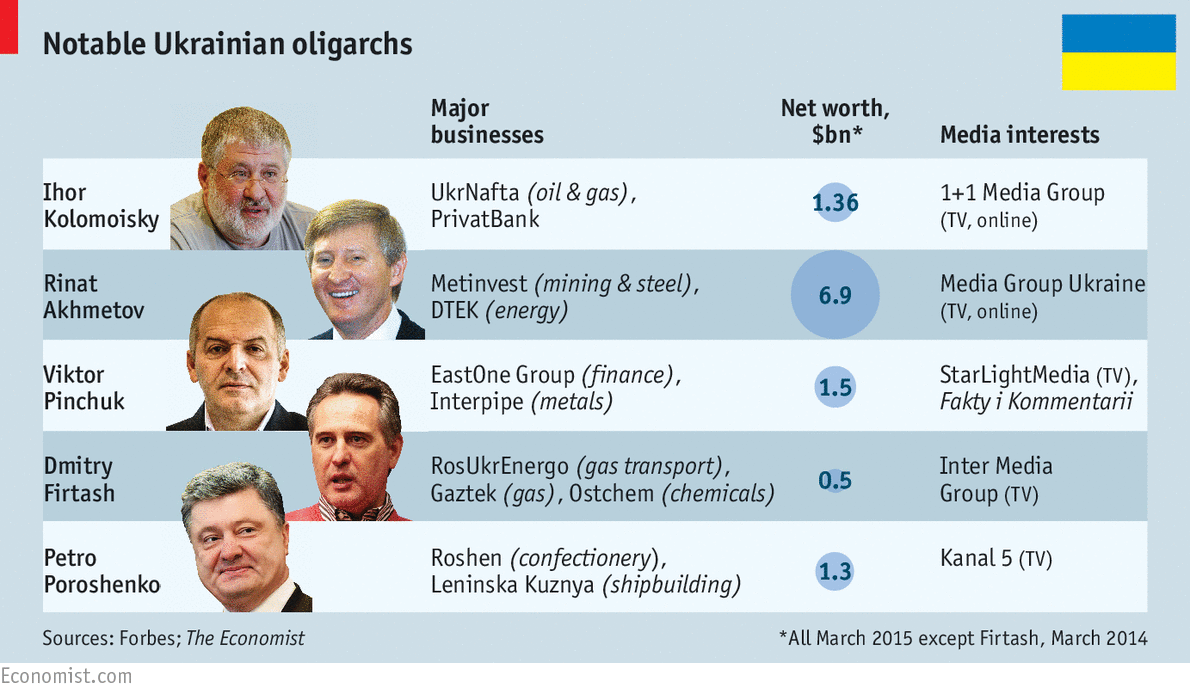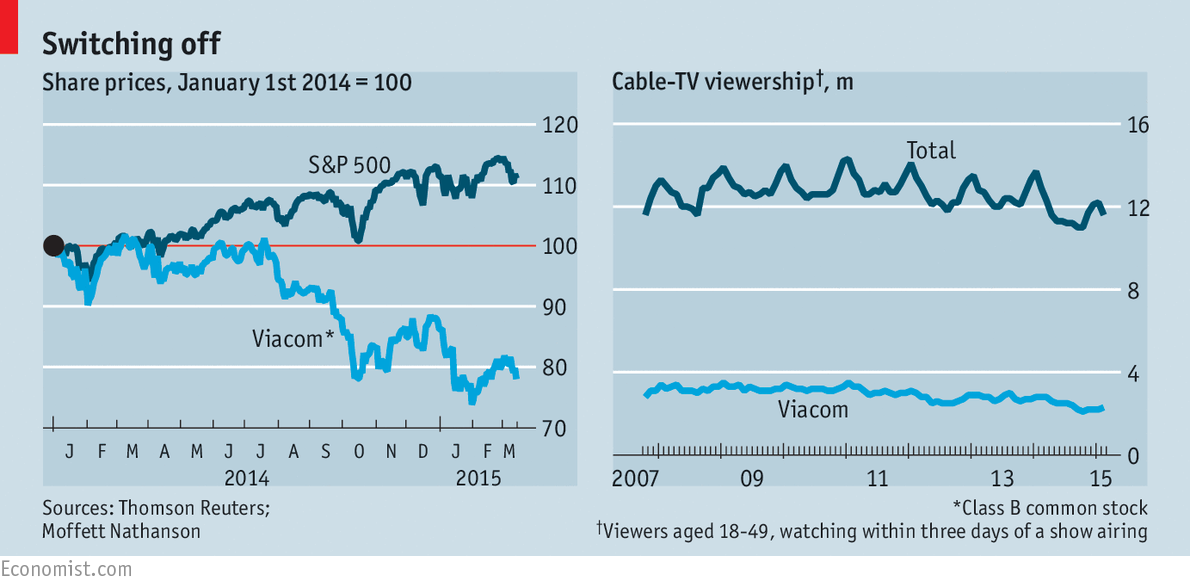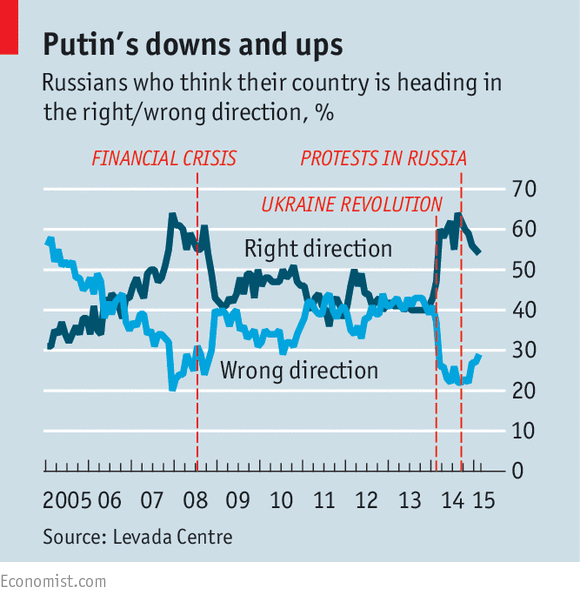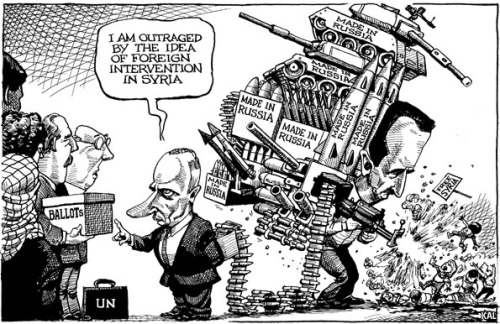
Tuesday, March 31, 2015
Sunday, March 29, 2015
Putin must be stopped. And sometimes only guns can stop guns ~ Timothy Garton Ash
http://www.theguardian.com/commentisfree/2015/feb/01/putin-stopped-ukraine-military-support-russian-propaganda

There is one other area in which Europe in general, and Britain in particular, can do more. Broadcast media are usually classed as soft power, but they are as important to Putin as his T-80 tanks. He has invested in them heavily. Among Russian speakers – including in eastern Ukraine and the Russian-speaking minorities in the Baltic states – he has used television to impose his own narrative of a socially conservative, proud Russia threatened by fascists in Kiev, an expansionist Nato and a decadent EU.

There is one other area in which Europe in general, and Britain in particular, can do more. Broadcast media are usually classed as soft power, but they are as important to Putin as his T-80 tanks. He has invested in them heavily. Among Russian speakers – including in eastern Ukraine and the Russian-speaking minorities in the Baltic states – he has used television to impose his own narrative of a socially conservative, proud Russia threatened by fascists in Kiev, an expansionist Nato and a decadent EU.
Last year a Russianist of my acquaintance was sitting naked and at ease in the hot tub with a friend of his in Moscow after several vodkas, as is the Russian custom, when this highly educated Russian asked: “So tell me, honestly, why do you support the fascists in Kiev?”
We need to counter this propaganda not with lies of our own but with reliable information and a scrupulously presented array of different views. No one is better placed to do this than the BBC. The US may have the best drones in the world, and Germany the best machine tools, but Britain has the best international broadcaster.
And there is an appetite for it: the BBC’s sadly diminished online Russian-language service still has an audience of nearly seven million, and during the crisis its Ukrainian-language audience has tripled to more than 600,000.
In his excellent report on the future of news, James Harding, the head of BBC News, makes a strong commitment to growing the World Service. Immediately stepping up its Russian and Ukrainian offerings would be a good way for the BBC to show that it will put its money where its mouth is. Without compromising the BBC’s independence, the British government could also chip in some extra funding.
If ever there were people in need of accurate, fair, balanced information, it is Russians and Ukrainians today. None of these things will stop Putin tomorrow, but in combination they will work in the end. Dictators win in the short run, democracies in the long.
Tumult at the Daily Telegraph
http://www.ft.com/intl/cms/s/0/881a98cc-d3ca-11e4-99bd-00144feab7de.html#axzz3VkwU6Kgv
From colonels to clickbait – Henry Mance on the identity crisis of an establishment newspaper
From colonels to clickbait – Henry Mance on the identity crisis of an establishment newspaper
Will TV football fans soon be priced out? ~ Simon Kuper
http://www.ft.com/intl/cms/s/0/a7c9df4e-d333-11e4-9b0a-00144feab7de.html#axzz3VkvCgGK8

©Luis Grañena
It’s legitimate to worry about stadium-goers being priced out. But it’s just as legitimate to worry about hundreds of millions of TV fans being priced out. That is now happening, as televised football shifts from a mass-market to an upmarket product. Even before the new TV deal, a third of British TV subscribers surveyed by Oxera Consulting for Virgin Media said they struggled to pay their subscription. Now Sky is raising prices: its “sports” bundle for British viewers costs £47 a month. Next, subscription prices will rise in other countries. Many poorer people will have to stop watching.

©Luis Grañena
It’s legitimate to worry about stadium-goers being priced out. But it’s just as legitimate to worry about hundreds of millions of TV fans being priced out. That is now happening, as televised football shifts from a mass-market to an upmarket product. Even before the new TV deal, a third of British TV subscribers surveyed by Oxera Consulting for Virgin Media said they struggled to pay their subscription. Now Sky is raising prices: its “sports” bundle for British viewers costs £47 a month. Next, subscription prices will rise in other countries. Many poorer people will have to stop watching.
Friday, March 27, 2015
Putin’s enemy within: Demonising the “fifth column”
http://www.ecfr.eu/article/commentary_putins_enemy_within_demonising_the_fifth_column311513

Meanwhile, as the government continues to harass and intimidate the “fifth column” and to pit the pro-Putin majority against this non-violent, politically impotent, semi-suffocated “enemy”, a real danger to the Russian state and society is rapidly rising. Analysts in Moscow are warning about the “privatisation of violence”. Russia is turning into a “confederation of mafias”, prominent Moscow analyst Dmitry Oreshkin said in an interview. “It’s not clear who’s killing in each particular case, whether it’s Kadyrov’s people, or [state security] people, or whether somebody else has come out with a private initiative,” he added. “The state as a system of institutions has disappeared. It has been privatised by certain groups who have executed violence at their own discretion.”

Meanwhile, as the government continues to harass and intimidate the “fifth column” and to pit the pro-Putin majority against this non-violent, politically impotent, semi-suffocated “enemy”, a real danger to the Russian state and society is rapidly rising. Analysts in Moscow are warning about the “privatisation of violence”. Russia is turning into a “confederation of mafias”, prominent Moscow analyst Dmitry Oreshkin said in an interview. “It’s not clear who’s killing in each particular case, whether it’s Kadyrov’s people, or [state security] people, or whether somebody else has come out with a private initiative,” he added. “The state as a system of institutions has disappeared. It has been privatised by certain groups who have executed violence at their own discretion.”
If Moscow TV Said Putin was a Criminal, Russians Would Soon Agree, Panfilov Says
http://www.interpretermag.com/if-moscow-tv-said-putin-was-a-criminal-russians-would-soon-agree-panfilov-says/

The situation in Ukraine is entirely different, he continued. There and especially among the young in Kyiv, people rely far less on television. In Russia, TV remains dominant not only because of “Soviet tradition” but because it is free and hard-pressed Russians are not inclined to spend money on alternatives.

The situation in Ukraine is entirely different, he continued. There and especially among the young in Kyiv, people rely far less on television. In Russia, TV remains dominant not only because of “Soviet tradition” but because it is free and hard-pressed Russians are not inclined to spend money on alternatives.
Thursday, March 26, 2015
#BBCtrending: Russians in Ukraine say 'Don't save us'
http://www.bbc.com/news/blogs-trending-26570150
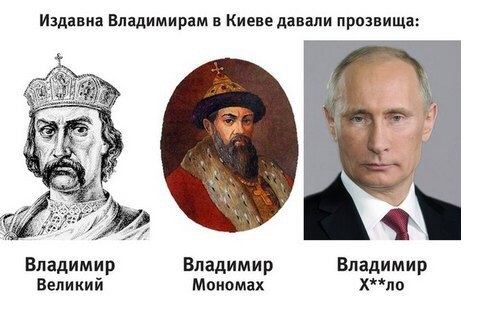
http://putinhuilo.info/keep-calm-and-putin-huilo/
http://maidantranslations.com/2014/05/10/the-etymology-of-the-word-huylo-as-in-putin-huylo/

From olden days, Vladimirs were given nicknames in Kyiv – Vladimir the Great, Vladimir the Monomakh, Vladimir the Huylo.
Created by advertising executive Aleksandr Gorlov, originally from Moscow but now living in Kiev, the films show residents of Ukraine waving their Russian passports as "proof" of their identity. In one film, Gorlov himself says "I live one kilometre from Maidan, my Russian mother visited me recently," to illustrate his sense of safety. Other Russians also living in Ukraine offer relaxed smiles to the camera and say "people always loved me here", before telling Russia "you should have asked me before 'saving' [us]". The series has garnered tens of thousands of views on Youtube.http://putinhuilo.info/keep-calm-and-putin-huilo/
http://maidantranslations.com/2014/05/10/the-etymology-of-the-word-huylo-as-in-putin-huylo/
One Professional Russian Troll Tells All
http://www.rferl.mobi/a/how-to-guide-russian-trolling-trolls/26919999.html

You work in the Ministry of Truth, which is the Ministry of Lies, and everyone kind of believes in this truth...it's Orwell.

You work in the Ministry of Truth, which is the Ministry of Lies, and everyone kind of believes in this truth...it's Orwell.
Wednesday, March 25, 2015
Putin’s Contempt for the West ~ Prof. Ian Robertson
https://professorianrobertson.wordpress.com/2015/02/24/putins-contempt-for-the-west/
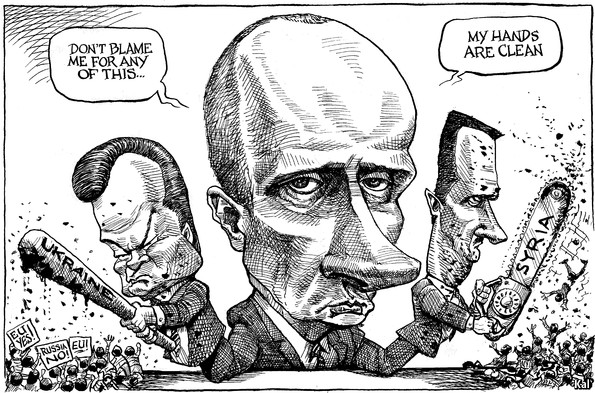

In June 2005, Vladimir Putin saw a diamond-studded Super Bowl ring on the finger of Robert Kraft, the owner of the New England Patriots. Kraft was in St Petersberg for a gathering of business leaders, and the ring was worth $25,000. Putin asked to see it, tried it on, and said: “I could kill someone with this.” Then, allegedly, he put it in his pocket, drew his security guards around him, and left the room.
What does this incident tell us about the psychology of the man who rules Russia? On the day that both government troops and Russian-backed rebels are supposed to begin withdrawing heavy weapons from the fron tline in eastern Ukraine as part of the Minsk agreement, this question is of special importance.
In democracies which have checks on leader’s power, psychology may not play a crucial role in statecraft. But Putin’s control over the Russian media, judicial system and business world means that his personal psychology plays a much more important role in state policies than is the case for other countries.
We don’t know exactly how much control Putin has over the rebels, but it is likely to be considerable, despite their protestations. Putin’s troops operate in Ukraine, and we know he believes himself to be the true leader of Russian-speakers in former Soviet satellites from Ukraine to Lithuania. Just read his speech to the Russia parliament on April 25, 2005:
“Above all, we should acknowledge that the collapse of the Soviet Union was a major geopolitical disaster of the century… Tens of millions of our co-citizens and compatriots found themselves outside Russian territory.”
Three months after the incident with Robert Kraft’s ring, while visiting the Guggenheim Museum in New York, Putin was shown a glass replica of a Kalashnikov gun filled with vodka. According to one biographer, Masha Gessen, Putin nodded to one of his guards, who, to the astonishment of all present, simply pocketed the piece.
Such incidents give us a first, important clue about his personality: Putin does not feel bound by the ordinary rules of civility. This, in turn, suggests that he may not be inclined to respect bigger rules – for instance those of the Minsk agreement.
To be fair, Putin almost certainly believes that the West has breached much bigger understandings with Russia regarding the integrity of the empire he formally served. The sight of NATO fighters patrolling Russian borders in what was formally Soviet territory is galling for him. Similarly, the flirting of former colonies such as Georgia and Ukraine with NATO membership is likely infuriating. From this distorted perspective, he feels justified in breaching more trivial rules of personal property in what he regards as a weak, decadent West.
A second key aspect of his personality is contempt. At a joint German-Russian cabinet meeting in Siberia in 2006, German Chancellor Angela Merkel chided Putin that he should treat his cabinet ministers with respect rather than contempt. Contempt is the emotion reserved for those we regard as inferiors, and it is likely that Putin regards the West – particularly Western Europe – as inferior in many ways, not least militarily.
Yet contempt is a very problematic emotion because it abolishes empathy. Empathy is the crucial ingredient of negotiation: compromises and trust arise when people begin to see things from the other point of view. But contempt negates the other perspective and the object of contempt is just that – an object. Objects do not have a point of view.
There is a third factor underlying Putin’s psychology: fear. A small, thin-skinned man who grew up in poverty in a Leningrad haunted by memories of starvation and death, he was personally witness to what was for him another catastrophe – the collapse of the Soviet Union.
'Ultimate' Putin Cartoon Goes Viral in Russia
http://www.newsweek.com/ultimate-putin-sketch-cartoon-goes-viral-russia-316591

Approximately 76% of those who viewed the video come from Russia, according to Norwegian media, with 8% from Ukraine and 4% from Kazakhstan. The video also sparked a furious online debate on YouTube about Russian activity in Ukraine, which Russia continues to deny. The comments below the video were mostly posted in Cyrillic script.

Approximately 76% of those who viewed the video come from Russia, according to Norwegian media, with 8% from Ukraine and 4% from Kazakhstan. The video also sparked a furious online debate on YouTube about Russian activity in Ukraine, which Russia continues to deny. The comments below the video were mostly posted in Cyrillic script.
Tuesday, March 24, 2015
How Russia Today is using YouTube
http://www.washingtonpost.com/blogs/monkey-cage/wp/2015/03/23/how-russia-today-is-using-youtube/?wpisrc=nl_cage&wpmm=1

On RT’s flagship YouTube channel, 27 percent of the videos posted highlighted Russia’s view of the crisis in Ukraine, and these videos accounted for nearly 27 percent of the channel’s views. In other words, though people may watch a wide range of stories on RT (anything from economic coverage to getting an inside look at the latest Russian fighter jet), they are indeed watching the Ukraine coverage.
Not all of RT’s efforts are so successful. For example, on the RT flagship channel, 21 percent of videos uploaded were European-interest driven. However, these videos accounted for only 11 percent of the channel’s views. In other words, a relatively smaller number of viewers see RT as a credible source of information on the situation in Europe. In contrast, human interest videos (which range from cat videos to building demolitions) represented nearly 10 percent of RT’s videos for the month, but garnered nearly 17 percent of its total views.

RT Channels Subscriber and Monthly Views Data
Data: quintly.com; Figure Anthony Livshen
Data: quintly.com; Figure Anthony Livshen
On RT’s flagship YouTube channel, 27 percent of the videos posted highlighted Russia’s view of the crisis in Ukraine, and these videos accounted for nearly 27 percent of the channel’s views. In other words, though people may watch a wide range of stories on RT (anything from economic coverage to getting an inside look at the latest Russian fighter jet), they are indeed watching the Ukraine coverage.
Not all of RT’s efforts are so successful. For example, on the RT flagship channel, 21 percent of videos uploaded were European-interest driven. However, these videos accounted for only 11 percent of the channel’s views. In other words, a relatively smaller number of viewers see RT as a credible source of information on the situation in Europe. In contrast, human interest videos (which range from cat videos to building demolitions) represented nearly 10 percent of RT’s videos for the month, but garnered nearly 17 percent of its total views.
Monday, March 23, 2015
35% of wealth in Russia belongs to just 110 billionaires
http://www.dailymail.co.uk/news/article-2451854/35-cent-household-wealth-Russia-belongs-just-110-billionaires.html
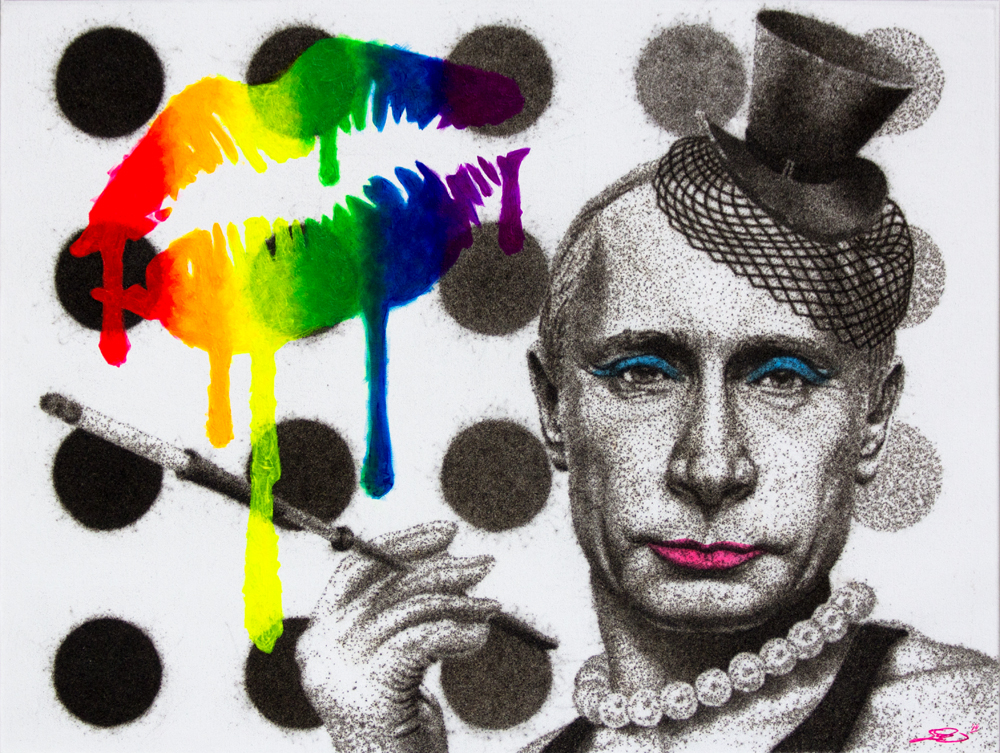
Levels of inequality have reached unprecedented heights in Russia, with more than a third of its wealth concentrated in the hands of just 110 super-rich people, says a new report. Credit Suisse investment bank says wealth has been massively concentrated in the hands of powerful ‘oligarchs’ – among them well-known football tycoons Roman Abramovich, the owner of Chelsea, and Alisher Usmanov, a major shareholder at Arsenal. And they nearly all owe their wealth to President Vladimir Putin, who has allowed trusted businessmen to gain exclusive rights to the nation’s vast natural reserves.

Levels of inequality have reached unprecedented heights in Russia, with more than a third of its wealth concentrated in the hands of just 110 super-rich people, says a new report. Credit Suisse investment bank says wealth has been massively concentrated in the hands of powerful ‘oligarchs’ – among them well-known football tycoons Roman Abramovich, the owner of Chelsea, and Alisher Usmanov, a major shareholder at Arsenal. And they nearly all owe their wealth to President Vladimir Putin, who has allowed trusted businessmen to gain exclusive rights to the nation’s vast natural reserves.
Saturday, March 21, 2015
A very cosmopolitan spy ~ Simon Kuper
http://www.ft.com/intl/cms/s/0/64661886-cdbf-11e4-8760-00144feab7de.html?siteedition=intl#axzz3V0ImIst3
 ©Luis Grañena
©Luis Grañena
One issue must haunt him: the several hundred British agents in eastern Europe whom he betrayed. He says the KGB assured him the agents wouldn’t be executed. Carey’s film reveals that at least one probably was. Others spent many years in jail. On this question Blake, a gentle person, seems to live in denial. It probably works for him. I left his dacha feeling he will die happy.
 ©Luis Grañena
©Luis GrañenaOne issue must haunt him: the several hundred British agents in eastern Europe whom he betrayed. He says the KGB assured him the agents wouldn’t be executed. Carey’s film reveals that at least one probably was. Others spent many years in jail. On this question Blake, a gentle person, seems to live in denial. It probably works for him. I left his dacha feeling he will die happy.
George Blake meant well but wreaked evil. He would probably say: that’s fate.
Lunch with the FT: Tony Hall ~ BBC
http://www.ft.com/intl/cms/s/2/1d834126-ce43-11e4-86fc-00144feab7de.html#axzz3V0ImIst3
 ©James Ferguson
©James Ferguson
Two years into his second coming at the BBC, where he sits atop a vast media organisation employing more than 18,000 people and deploying an annual budget of £5bn, Hall wears the cares of office lightly. His in-tray may be groaning with the most colossal to-do list, from the repurposing of the corporation for the digital age to the looming renegotiation of its licence fee (a fraught political discussion that will determine whether the BBC has a future in its current form at all).
 ©James Ferguson
©James FergusonTwo years into his second coming at the BBC, where he sits atop a vast media organisation employing more than 18,000 people and deploying an annual budget of £5bn, Hall wears the cares of office lightly. His in-tray may be groaning with the most colossal to-do list, from the repurposing of the corporation for the digital age to the looming renegotiation of its licence fee (a fraught political discussion that will determine whether the BBC has a future in its current form at all).
Friday, March 20, 2015
EU set to fight back in Russia information war
http://www.bbc.com/news/blogs-eu-31932005
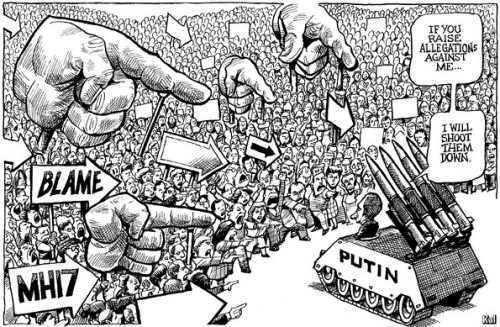
A paper produced earlier this year by four countries - Denmark, Estonia, Lithuania and the UK - notes that Russia is "rapidly increasing its disinformation and propaganda campaign".

A paper produced earlier this year by four countries - Denmark, Estonia, Lithuania and the UK - notes that Russia is "rapidly increasing its disinformation and propaganda campaign".
The aim, according to the paper, is "to discredit EU narratives, erode support for legitimate governments… and undermine the concept of free independent, pluralistic media".
"Where there is misinformation, particularly about the EU's policies and programmes, the EU needs to have something more coherent to say about it," said an EU diplomat.
http://www.economist.com/news/europe/21646756-europe-belatedly-waking-up-russias-information-warfare-aux-armes-journalistes
Russian outlets must abide by local laws, of course. But Europeans should be wary of handing Mr Putin easy propaganda wins. Up against lavishly financed Russian media, cash-strapped, fractious Europe will always struggle: one American official likens the battle to using a teaspoon to shovel out of a snowstorm. But European values like free speech and a commitment to truth remain potent, as Ukrainians know well. Europe’s best hope lies in loudly promoting them. If attempts to counter disinformation are to get anywhere, they must demonstrate the falsehood of the most brazen Russian proposition of all: that there is no truth in reporting, just a postmodern potpourri of perspectives.
http://www.economist.com/news/europe/21646756-europe-belatedly-waking-up-russias-information-warfare-aux-armes-journalistes
Russian outlets must abide by local laws, of course. But Europeans should be wary of handing Mr Putin easy propaganda wins. Up against lavishly financed Russian media, cash-strapped, fractious Europe will always struggle: one American official likens the battle to using a teaspoon to shovel out of a snowstorm. But European values like free speech and a commitment to truth remain potent, as Ukrainians know well. Europe’s best hope lies in loudly promoting them. If attempts to counter disinformation are to get anywhere, they must demonstrate the falsehood of the most brazen Russian proposition of all: that there is no truth in reporting, just a postmodern potpourri of perspectives.
Thursday, March 19, 2015
Has the Russian System’s Agony Begun? ~ Lilia Shevtsova
http://www.the-american-interest.com/2015/03/17/has-russias-agony-begun/

The really revealing detail about Putin’s disappearance, however, was the dog that didn’t bark. Despite Putin’s having an 85 percent approval rating and despite widespread rumors of his ouster Russians didn’t take to the street to demand his return! It was almost as if they didn’t care what happened to him. This is a lesson that won’t be lost on anyone in Russia—and it should be lost on anyone in the West.
The really revealing detail about Putin’s disappearance, however, was the dog that didn’t bark. Despite Putin’s having an 85 percent approval rating and despite widespread rumors of his ouster Russians didn’t take to the street to demand his return! It was almost as if they didn’t care what happened to him. This is a lesson that won’t be lost on anyone in Russia—and it should be lost on anyone in the West.
Monday, March 16, 2015
Ukraine's media war ~ Battle of the memes
http://www.economist.com/news/europe/21646280-russia-has-shown-its-mastery-propaganda-war-ukraine-struggling-catch-up-battle-web?fsrc=scn/tw_ec/battle_of_the_memes
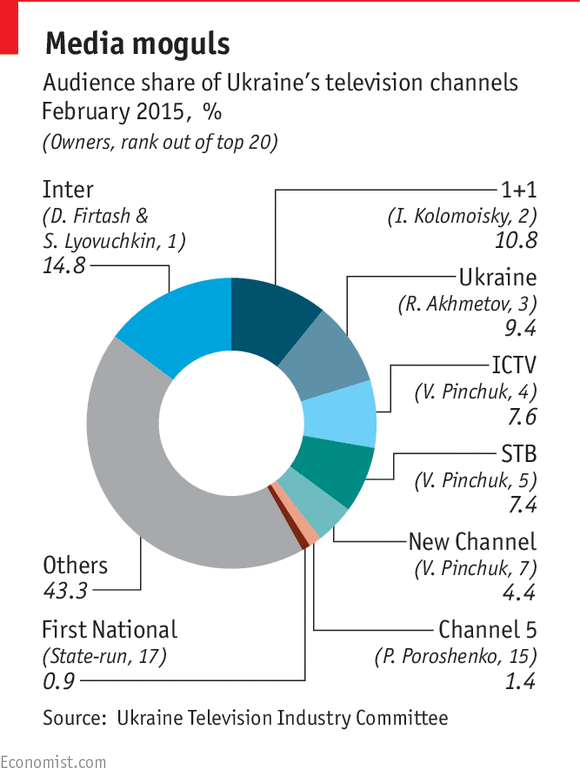
Ukrainian journalists have been struggling with how to carry themselves in a war where the media plays an outsize role. Inside the newsroom of 1+1, one of Ukraine's top television stations, Ukrainian flags signed by soldiers hang on the walls. Spent shells rest on bookshelves, and on the floor lie fragments of the ruined Donetsk airport. Next to a target-practice mannequin dressed in a separatist uniform and labeled "Putin", a donation box calls out: "Help Protect Ukraine". Aleksander Tkachenko, chief executive of 1+1 Media, says journalists have found themselves "participants in a war. Not physically, but a new type of war."

Ukrainian journalists have been struggling with how to carry themselves in a war where the media plays an outsize role. Inside the newsroom of 1+1, one of Ukraine's top television stations, Ukrainian flags signed by soldiers hang on the walls. Spent shells rest on bookshelves, and on the floor lie fragments of the ruined Donetsk airport. Next to a target-practice mannequin dressed in a separatist uniform and labeled "Putin", a donation box calls out: "Help Protect Ukraine". Aleksander Tkachenko, chief executive of 1+1 Media, says journalists have found themselves "participants in a war. Not physically, but a new type of war."
Sunday, March 15, 2015
Putler ~ Magician, Mouse or Monster (2006) Ed Lucas
This ... long piece on Putin was not written for the Economist and is likely to stay unpublished. I am posting it here for people with a detailed interest in Russia. Comments are welcome, but I should stress that I am not the Economist's Moscow correspondent and this is not an official Economist article in any way shape or form.
Vladimir Putin. Magician, Mouse or Monster
I saw a lot of President Vladimir Putin when he became my neighbour. At least I saw him most days; I doubt he saw me, fuming at the side of the road as his presidential convoy swept past at 80mph all the way to the Kremlin from his newly built presidential palace in our village of Kalchuga, 10 miles outside Moscow.
Mr Putin's country pad and its effect on our village highlighted for me his regime's authoritarian, bullying style. The past week's rows over gas have now brought that home for the rest of the world. Russia is not just aggressive towards its neighbours, but contemptuous of world opinion. Under Mr Putin, it is no longer a basket case: it is rich, powerful, unpredictable and malicious.
The first thing I noticed about my neighbour was that he had to build a new house: he hadn't inherited the sumptuous country retreat of his predecessor, Boris Yeltsin. That was because the deal between Russia's crooks and spooks that brought Mr Putin, then an unknown and undistinguished bureaucrat, to power in 2000 included an iron-clad agreement that the outgoing Yeltsin clan would not just be immune from prosecution, but also keep the spoils of officecash, cars and country cottages.
Secondly, the Putin "dacha" or "cottage" (it was about the size of Sandringham) was built at amazing speed and great secrecy on a disused airfield at the edge of our village. That infuriated my sons, who were learning to ride bicycles there. It also illustrated an important point about the way the Russian state works. It may be corrupt, lethargic, and stunningly incompetent in general. But when the man at the top wants something done, it happens fast and ruthlessly.
Our Russian neighbours in the village were unhappy at the rush of development that followed Mr Putin's arrival. One new rich neighbour with close Kremlin connections concreted over the village green to make a driveway for his mansion, beating up an elderly neighbour who objected. Then a property company, also with Kremlin links started bulldozing a nearby forest for a housing development. That taught us two lessons about Mr Putin's Russia. It was startlingly encouraging to see the effects of ten years of democracy: the villagers reacted not with traditional Russian apathy, but with lawsuits, petitions, and when all else failed, direct action: they blocked Mr Putin's road to work. The sad lesson was that the legal system brushed them aside; that their petitions were ignored, and that their modest demonstration met with a tough Soviet-style response from the authorities. The developers and their mates in officialdom offered cash andbizarrely and for reasons I never understoodfridges to those locals willing to join a rival outfit set up to campaign for the new housing development and denounce the protestors as anarchists, greens and communists. Setting up fake front organisations was a classic Soviet-era tactic. So was bullying opponents. The villagers received blunt threats: "we will turn up with a bit of paper saying your house is built on our land, and then we will bulldoze it" a shadowy official told my next-door neighbour.
Such are the paradoxes of Putin's Russia. There is prosperity amid lawlessness. The outward trappings of democracy decorate an increasingly authoritarian system. Imperial pomp and ceremony surround a modest-seeming man from a humble background. But the biggest puzzle is that what the all-powerful Mr Putin really wants, believes and can do is still a mystery to Russians, as it is to the former captive nations of eastern Europe, and to the rest of the world. Sometimes it seems a mystery to Mr Putin too. Certainly when he was first nominated by Mr Yeltsin as designated successor, he seemed as baffled as everyone else. "I am obeying orders," he told journalists wryly in the summer of 1999 when he first emerged, blinking and tongue-tied, into the world's view. Mr Yeltsin, the bearlike destroyer of Soviet communism, was by then so confused and erratic in his rule that few people thought his choice of successor would mean much. Mr Putin, a dull, publicity-shy bureaucrat with not an ounce of charisma, and the fifth prime minister in 18 months, would surely be swept aside by some bouncier character, such as the rumbustious wheeler-dealer mayor of Moscow, Yuri Luzhkov. Yet the provincial Mr Putin, a second-rate spy turned local-government official, moved seamlessly into the top job, and now presides over the world's largest country, over its second-biggest nuclear arsenal, and over its most strategically important gas reserves.
To everyone's surprise, he rapidly became very popular. For the public, he was sober, young and athleticeverything that Mr Yeltsin wasn't. And for the Russian elite, he was the ideal compromise.
The spooks, longing to restore Russia's great-power status, liked him because of his intelligence background: not quite the top drawer, perhaps, but certainly part of the charmed circle that had studied at the Red Banner Institute, the top Soviet spy-school.
And he was palatable for the crooks. These were the sharpwitted shysters who had run black-market businesses during the late Soviet era, and had gone on to grab amazingly lucrative stakes in the free-for-all that followed over who would control Russia's natural wealth, and exploit the huge opportunities that capitalism created in banking, transport and property. Having served as a trusted official in the Kremlin, Mr Putin knew the way that wealth and power in Russia overlapped. Mr Yeltsin's highly influential daughter, Tatyana Dyachenko, and her husband Valentin Yumashev, the two figures in the Kremlin that epitomised the reckless greed of 1990s Russia in their blurred roles as high officials and highly successful businesspeople, were solidly behind the new man.
So at the beginning, many people hoped that Mr Putin would be a magician-president who would kick-start reforms and drag Russia into the modern world. Even democratic-minded Russians who loathed the KGB and everything it stood for wanted to give the new man a chance. And for a time it looked good: he cracked down on the "oligarchs"the arrogant, lawless tycoons who had looted Russia in the 1990s. True, that meant closing down their once-flourishing media empires, all of which are now run by tame businessmen close to the Kremlin. But that seemed defensible. Independent television is one thing; pocket stations that blatantly serve the commercial interests of their owners are hardly an ornament to democracy. Mr Putin might have a steely manner, but he spoke nice words. He praised democracy and civil society.
Many outsiders were prepared to give Mr Putin the benefit of the doubt too. George Bush said that he had looked into the Russian president's eyes and "seen his soul". Tony Blair enjoyed lavish nights at the opera during visits to Russia. Gerhard Schroeder got on so well with the German-speaking Putins that they spent a family Christmas together; Mr Putin intervened personally to help Mr Schroeder bend the rules and adopt a Russian orphan.
The first doubts appeared over Mr Putin's effectiveness. It was increasingly clear that he wasn't a magician: The growth in the Russian economy owed everything to high prices for oil and gas, and almost nothing to the half-hearted, half-baked reforms coming out of the Kremlin. Many began to think Russian president was a mouse, an over-promoted minor spook who spent his days obsessively reading intelligence reports, but was ignorant of the big picture, and lacking the drive and vision needed to run a country as huge and troubled as Russia. Mr Putin might be good at appearing on television, in elaborately choreographed stuntsflying a fighter plane, whizzing down ski slopes, hurling opponents across a judo mat. He certainly seemed to enjoy themwhat a contrast to his humble origins as a scrawny, bullied youngster from a hard-up family living in a rundown communal apartment in Soviet Leningrad. But many felt that real power surely lay elsewhere, with the sleazy, wily old-timers inherited from the Yeltsin era.
Certainly Mr Putin's public utterances, or the lack of them, were often mystifying in their quality and quantity. At times of crisis, such as terrorist attacks by Chechen rebelsthe direct result, many say, of his regime's brutal policy of reprisals in that breakaway republiche simply vanishes from public view. When he does speak in public, his remarks have seemed at times astonishingly callous and ill-judged. Asked on live television about the Kursk tragedy, in which 118 Russian submariners perished, Mr Putin shrugged and smirked: "it sank". Speaking about Chechen rebels, he resorted to slang normally heard only in the mouths of gangsters, which could be loosely translated as "if we find them in the shit-house, we'll whack'em in the shit-house". Criticised at a press conference in Brussels for his harsh policies in Chechnya, he suggested that the offending journalist should undergo ritual castration at the hands of Muslim extremists. At a joint press conference with Mr Blair, he could not resist the temptation to humiliate the British Prime Minister about the absence of weapons of mass destruction in Iraq. "Maybe they're here, under this desk" he sneered. Mr Blair has never trusted him again.
What is really scary about Mr Putin is that despite his undistinguished record in office, his limited intellectual and cultural horizons, and his bullying manner, he has still been able to turn the tables on the people who put him in power. Russia may still be shambolic, but it is a shambles over which he and his team of Kremlin loyalists, mostly from the old KGB, is in undisputed charge. Everyone who has dared challenge or resist Mr Putin's rule has been sidelined, neutralised or humiliated. The Yeltsin advisers are gone. The tycoons are in jail, in exile, or in political purdah. The media is cowed. The opposition parties are shams, run to give the appearance of pluralism to the Russian public and the outside world, but with no chance of taking real power. The once-mighty regional chieftains like Mintimir Shaimiyev of Tatarstan and Yuri Luzhkov of Moscow, who used to run Russias's cities and regions as private fiefs are now, like the central government itself, merely nervous servants who carry out the presidential administration's commands as their predecessors once obeyed the Communist Party of the Soviet Union.
That is thanks to the way the Russian state works. There is huge power for the man at the top, regardless of whether he is impressive or not. Lenin, Brezhnev, Andropov and Yeltsin all ruled for years as sick men. Mr Putin is the first Russian leader since Peter the Great to have the simple advantages of being punctual, efficient, fit, sober and concise.
Mr Putin's KGB background adds both useful skills, and an aura of intimidating mystery. Even Russians who hated and feared the Soviet secret police have grudging respect for it. It was an organisation that recruited the brightest and toughest people in the country, and gave them excellent training. All KGB officers are trained in target acquisition: gaining a target's cooperation through bribes, flattery or threatsand then bending them to your will. Some joke that Mr Putin's relationship with Mr Schroder is a public example of this.
Privately, Mr Putin seems to enjoy showing off the fruits of his spy networks and their dungeons packed with information. A western newspaper editor who met him was amazed when the Russian leader murmured at the start of the interview, in English, "I hope your wife's mother recovers soon." Not even the editor's closest colleagues knew that his mother-in-law was gravely ill.
Mr Putin also understands the way that corruption both fuels Russia and makes it manageable. When the rules are impossible to observe, everyone is vulnerable. It requires only a phone call from the top and the tax police, special anti-corruption police, anti-racketeering squad and all manner of other menacing, implacable monsters descend on an uncooperative individual, company and organisations. Even the honest cannot hope to escape the government inspectors: they will always find something. Such arbitrary rule is inefficientbut Russia's oil and gas wealth makes it affordable.
In short: Mr Putin is neither a magician, nor a mouse. But he increasingly looks like a monster. He has unleashed the two most sinister forces of the Soviet past: the totalitarian habits of the security services, and the imperialist urge that lies deep in the Russian psyche. Put politely, he wants the Russian state to be strong at home and abroad. Put crudely, he is trying to recreate an empire reminiscent of the Soviet Union: feared by its own people and its neighbours in equal measure.
The big question now for Russia and the world is what happens next. The bullying of the former captive nations seems set to continue: the latest spat about gas has illustrated that rich Europe is unwilling or unable to protect the east European countries that are captives of the Russian gas monopoly. The slide away from democracy is continuing too. Here 2008 will be decisive, when, according to the Russian constitution, Mr Putin should step down as his second term in office ends. Few believe that he, like his predecessor Boris Yeltsin, will step gracefully away from power in return for immunity against prosecution for him and his family. Some smart money bets that he will leave a puppet figure in the Kremlin, and move over to Gazprom, the hugely powerful Russian gas monopoly. Others think he will change the constitution. Or he may create a new country, a union of Russia and Belarus, and become president of that.
But one thing is clear and scary. The world may still know very little about the prickly little ex-spy who now runs Russia. But it is going to be hearing about him for a long time to come.
Saturday, March 14, 2015
This is why it’s impossible for the Kremlin to lie about Putin’s weird disappearance
http://www.washingtonpost.com/posteverything/wp/2015/03/14/this-is-why-its-impossible-for-the-kremlin-to-lie-about-putins-weird-disappearance/
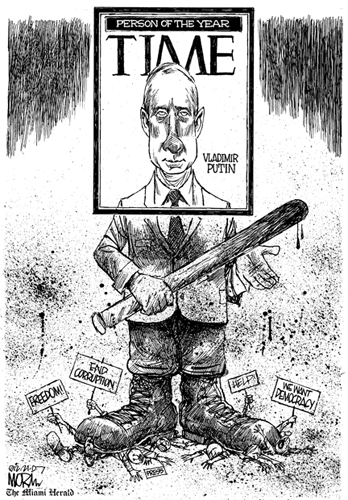
You can see why some in Russia are panicking right now—or veiling their discomfort in humor. It certainly doesn’t help that Putin’s disappearance comes at a particularly nervous time for the country. It is at war in Ukraine, its economy is shuddering under sanctions and historically low oil prices, and the opposition leader, Boris Nemtsov, was recently gunned down steps from the Kremlin. There is a sense in Moscow that the wheels are coming off. To Moscow’s chattering class, Putin’s disappearance confirms that impression.

You can see why some in Russia are panicking right now—or veiling their discomfort in humor. It certainly doesn’t help that Putin’s disappearance comes at a particularly nervous time for the country. It is at war in Ukraine, its economy is shuddering under sanctions and historically low oil prices, and the opposition leader, Boris Nemtsov, was recently gunned down steps from the Kremlin. There is a sense in Moscow that the wheels are coming off. To Moscow’s chattering class, Putin’s disappearance confirms that impression.
Friday, March 13, 2015
Wearable technology: The wear, why and how
http://www.economist.com/news/business/21646225-smartwatches-and-other-wearable-devices-become-mainstream-products-will-take-more
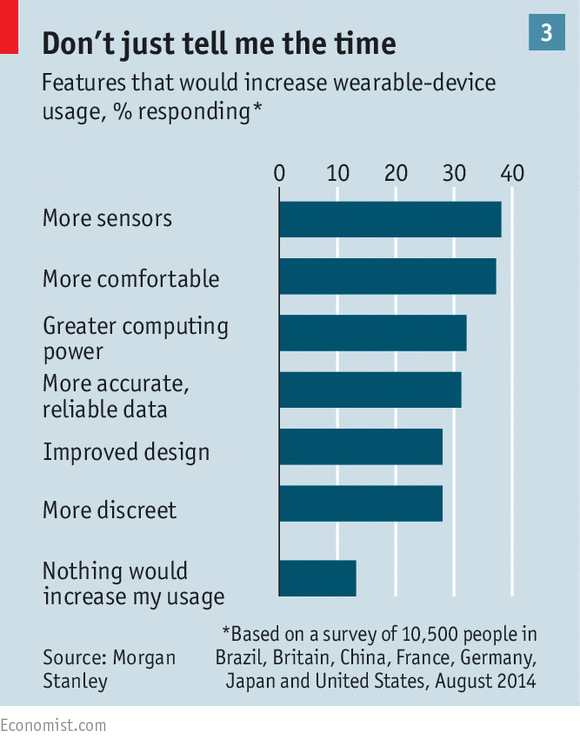 Some analysts think wearables’ killer feature may eventually be that they will provide their users with a “persistent” digital identity, melding the functions of a driving licence, credit card, house key, car key and computer in one small gadget worn on the wrist or neck. To see what that future might look like, travel to the Disney World theme park in Orlando. Disney invested around $1 billion to build a system in which people use a wristband (called a MagicBand) to get on rides, pay for food and enter their hotel rooms. The technology is convenient for guests, who have to carry around fewer cards, but probably costs them more in the end, because it is so easy to buy something without thinking of the bill. The bands let Disney collect data in real time about the traffic their rides and restaurants are getting, so as to deploy staff to the right places. Other firms are taking tentative steps in a similar direction. Carmakers such as Hyundai are creating apps to let people unlock and start their cars remotely with their watches and phones.
Some analysts think wearables’ killer feature may eventually be that they will provide their users with a “persistent” digital identity, melding the functions of a driving licence, credit card, house key, car key and computer in one small gadget worn on the wrist or neck. To see what that future might look like, travel to the Disney World theme park in Orlando. Disney invested around $1 billion to build a system in which people use a wristband (called a MagicBand) to get on rides, pay for food and enter their hotel rooms. The technology is convenient for guests, who have to carry around fewer cards, but probably costs them more in the end, because it is so easy to buy something without thinking of the bill. The bands let Disney collect data in real time about the traffic their rides and restaurants are getting, so as to deploy staff to the right places. Other firms are taking tentative steps in a similar direction. Carmakers such as Hyundai are creating apps to let people unlock and start their cars remotely with their watches and phones.
 Some analysts think wearables’ killer feature may eventually be that they will provide their users with a “persistent” digital identity, melding the functions of a driving licence, credit card, house key, car key and computer in one small gadget worn on the wrist or neck. To see what that future might look like, travel to the Disney World theme park in Orlando. Disney invested around $1 billion to build a system in which people use a wristband (called a MagicBand) to get on rides, pay for food and enter their hotel rooms. The technology is convenient for guests, who have to carry around fewer cards, but probably costs them more in the end, because it is so easy to buy something without thinking of the bill. The bands let Disney collect data in real time about the traffic their rides and restaurants are getting, so as to deploy staff to the right places. Other firms are taking tentative steps in a similar direction. Carmakers such as Hyundai are creating apps to let people unlock and start their cars remotely with their watches and phones.
Some analysts think wearables’ killer feature may eventually be that they will provide their users with a “persistent” digital identity, melding the functions of a driving licence, credit card, house key, car key and computer in one small gadget worn on the wrist or neck. To see what that future might look like, travel to the Disney World theme park in Orlando. Disney invested around $1 billion to build a system in which people use a wristband (called a MagicBand) to get on rides, pay for food and enter their hotel rooms. The technology is convenient for guests, who have to carry around fewer cards, but probably costs them more in the end, because it is so easy to buy something without thinking of the bill. The bands let Disney collect data in real time about the traffic their rides and restaurants are getting, so as to deploy staff to the right places. Other firms are taking tentative steps in a similar direction. Carmakers such as Hyundai are creating apps to let people unlock and start their cars remotely with their watches and phones.
Sex, Politics, & Putin
http://www.worldaffairsjournal.org/blog/alexander-j-motyl/sex-politics-and-putin

Putin’s actual accomplishments are few. He dismantled democracy and muzzled the media. He constructed a fascistoid regime and perverted the very notion of truth. He marginalized the democratic opposition and, at least until recently, crushed the North Caucasus independence movements. He annexed the Crimea and doesn’t know what to do with it. He started a war in eastern Ukraine and, once again, doesn’t know what to do next. The bottom line is that Russia remains a Belgium with a bomb and a profoundly corrupt petro-state incapable of technological innovation and sustained economic growth, while having become, under Putin, a rogue state.

Putin’s actual accomplishments are few. He dismantled democracy and muzzled the media. He constructed a fascistoid regime and perverted the very notion of truth. He marginalized the democratic opposition and, at least until recently, crushed the North Caucasus independence movements. He annexed the Crimea and doesn’t know what to do with it. He started a war in eastern Ukraine and, once again, doesn’t know what to do next. The bottom line is that Russia remains a Belgium with a bomb and a profoundly corrupt petro-state incapable of technological innovation and sustained economic growth, while having become, under Putin, a rogue state.
Thursday, March 12, 2015
Answering the Critics of a Tough Russia Policy
http://cepa.org/content/answering-critics-tough-russia-policy

....it is worth stressing that it is not NATO and EU expansion that have undermined the existing European security order. All the international agreements mentioned explicitly (and rightly) underline the right of individual countries to make choices about their future. If Belarus wants to join the Eurasian Economic Union, it can. The West is not going to invade that country’s western districts, or support insurrections there, on the grounds that the ancient Polish lands around Brest and Grodno have a different historical destiny and became part of Belarus only because of an accident of history. So why cannot Ukraine, for its part, make a decision to look to Europe?

....it is worth stressing that it is not NATO and EU expansion that have undermined the existing European security order. All the international agreements mentioned explicitly (and rightly) underline the right of individual countries to make choices about their future. If Belarus wants to join the Eurasian Economic Union, it can. The West is not going to invade that country’s western districts, or support insurrections there, on the grounds that the ancient Polish lands around Brest and Grodno have a different historical destiny and became part of Belarus only because of an accident of history. So why cannot Ukraine, for its part, make a decision to look to Europe?
A Devil’s Dozen of Developments in Putin’s Russia
http://www.interpretermag.com/a-devils-dozen-of-developments-in-putins-russia/
Even though Vladimir Putin is extremely successful in managing the news about the big issues in Russian life, such as what he calls “the investigation” rather than the cover-up of the murder of Boris Nemtsov, he cannot control the flow of news items which directly or indirectly show the way in which his country is moving.
 |
| Source: +The Economist |
Путин, марьиванна и "украинцы в телевизоре"
http://www.svoboda.org/content/article/26840571.html
От КПСС до Путина: каков был путь к новой цензуре и новой медиареальности в России
От КПСС до Путина: каков был путь к новой цензуре и новой медиареальности в России
How the Kremlin & the Media Ended Up in Bed Together
http://www.themoscowtimes.com/opinion/article/how-the-kremlin-and-the-media-ended-up-in-bed-together/517323.html

"Editor's note: This is the longest text ever published by The Moscow Times. We've decided to publish it because it describes in detail a key Russian narrative, of how the Kremlin rules the country with the help of the controlled media. It is a bitter story of how the Russian media, with very few exceptions, have abandoned, sometimes through coercion, but mostly voluntarily and even eagerly, their mission of informing the public and have turned into creators of the Matrix-like artificial reality where imaginary heroes and villains battle tooth and nail in Russia's Armageddon"

"Editor's note: This is the longest text ever published by The Moscow Times. We've decided to publish it because it describes in detail a key Russian narrative, of how the Kremlin rules the country with the help of the controlled media. It is a bitter story of how the Russian media, with very few exceptions, have abandoned, sometimes through coercion, but mostly voluntarily and even eagerly, their mission of informing the public and have turned into creators of the Matrix-like artificial reality where imaginary heroes and villains battle tooth and nail in Russia's Armageddon"
Wednesday, March 11, 2015
Russian military shelled Ukraine from mid-July, report says
http://www.theguardian.com/world/2015/mar/11/russia-struggling-ukraine-military-operations-report
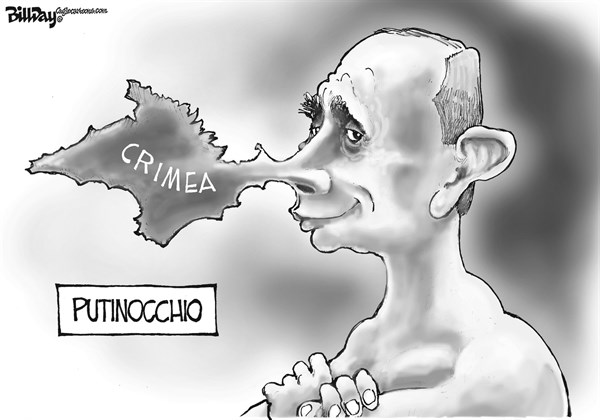
“The first operational successes of Ukrainian forces in late June and early July 2014 first prompted Russian artillery fire from within Russian territory, targeted against advancing Ukrainian troops on their own soil, from mid-July onwards,” the report’s author, Igor Sutyagin, writes. “Direct intervention by Russian troops in combat roles then followed in the middle of August, when the prospect of rebel defeat had become realistic. The presence of large numbers of Russian troops on Ukrainian sovereign territory has, more or less, since become a permanent feature of the conflict.”

“The first operational successes of Ukrainian forces in late June and early July 2014 first prompted Russian artillery fire from within Russian territory, targeted against advancing Ukrainian troops on their own soil, from mid-July onwards,” the report’s author, Igor Sutyagin, writes. “Direct intervention by Russian troops in combat roles then followed in the middle of August, when the prospect of rebel defeat had become realistic. The presence of large numbers of Russian troops on Ukrainian sovereign territory has, more or less, since become a permanent feature of the conflict.”
Russia Hacking The News
http://www.forbes.com/sites/peterhimler/2015/03/10/russia-hacking-the-news/
...no state is more duplicitous (and effective) in this regard than Mr. Putin’s Russia. Does anyone actually believe that Chechen separatists killed Putin adversary Boris Nemtsov? (In the non-state actor category, ISIS is giving Russia a run for its money.) Both examples cited in the Borthwick piece had their origins in Russia. The first propagated the false notion that 26% of French youth supported ISIS. It was based on a dubious survey:
“Beyond the methodology, the survey was commissioned by Russian news agency Rossiya Segodnya. The trail of the media breadcrumbs seem to be as follows: Rossiya Segodnya commissioned a survey to test support or opposition to the admissions of Georgia and the Ukraine into the EU, the ISIS question was secondary.”
...no state is more duplicitous (and effective) in this regard than Mr. Putin’s Russia. Does anyone actually believe that Chechen separatists killed Putin adversary Boris Nemtsov? (In the non-state actor category, ISIS is giving Russia a run for its money.) Both examples cited in the Borthwick piece had their origins in Russia. The first propagated the false notion that 26% of French youth supported ISIS. It was based on a dubious survey:
“Beyond the methodology, the survey was commissioned by Russian news agency Rossiya Segodnya. The trail of the media breadcrumbs seem to be as follows: Rossiya Segodnya commissioned a survey to test support or opposition to the admissions of Georgia and the Ukraine into the EU, the ISIS question was secondary.”
Britain may broadcast Putin's financial secrets to Russian people
http://www.telegraph.co.uk/news/worldnews/europe/russia/11461163/Britain-may-broadcast-Putins-financial-secrets-to-Russian-people.html?fb_ref=Default
Putin's money men

Vladimir Yakunin

Gennady Timchenko and wife Elena

Yuri Kovalchuk

Igor Sechin
Putin's money men
The wealth of Putin's inner circle runs to tens of billions of pounds.
Vladimir Yakunin

Vladimir Yakunin
Head of Russian Railways, the country's biggest employer, since 2005. He has been part of Putin's St Petersburg circle since the 1990s, and is dogged by claims from opposition activists over his wealth. He accompanies Mr Putin on overseas visit, and was in charge of construction during the Sochi Winter Olympics. He has been hit with US sanctions. His network is unknown but his official salary is $15 million.
Gennady Timchenko

Gennady Timchenko and wife Elena
Founder of Gunvor, the Swiss-based oil trader, he sold his stake just before being hit by US sanctions. His net worth is reckoned to be $14.5 billion, according to Forbes. Putin is said by the US to have "investments in Gunvor and may have access to Gunvor funds". The company strongly denies that claim, and has not been subject to foreign sanctions.
Yuri Kovalchuk

Yuri Kovalchuk
Once dubbed one of Putin's "cashiers". He is the largest shareholder of Bank Rossiya, called by the US the "personal bank for senior officials" of Russia. He is a member of the Ozero Dacha, a community of lakeside homes of Putin and his allies. His wealth is estimated to be $1.4 billion. He is hit by US and EU sanctions.
Arkady and Boris Rotenburg
Arkady is Putin's old judo partner, and is subject to EU sanctions.. The brothers have interests in pipelines, road construction and banking, and are presidents of Dinamo Moscow hockey and football clubs respectively. They received billions of dollars of contracts for the Sochi games. Their personal wealth is said to be $2.5 billion.
Igor Sechin

Igor Sechin
President of Rosneft, the state oil company, and the former deputy prime minister. His salary was $50 million last year. He is one of the most powerful figures in the administration, and is said to "economic interests" with Putin.
Monday, March 9, 2015
Murder of a friend - Edward Lucas
Murder of a friend
My immediate reaction to the opposition leader’s death on Friday evening was misery and fury. Now, it is fear. Fear for what the assassination of my friend may herald—either a return to a terrifying past, or a descent into a still more alarming future.
Edward Lucas
Boris Nemtsov was my closest friend in Russian politics. I had known him since the late 1990s when he was trying vainly to stem the sleaze and authoritarianism that eventually brought Putin and his ex-KGB cronies to power.
Unlike some Russian liberals, Nemtsov saw through Putin from the beginning. He disliked the new leader’s background as an unrepentant KGB officer, and worried about his murky years spent in the city administration of gangster-ridden St Petersburg.
He decried the political bargain that the new regime offered as sinister and misleading: Russians craved stability but it should not come at the price of ending political pluralism.
As the regime tightened its grip on the electoral system, Nemtsov and other liberals were excluded from public life. He turned to protests and to investigating corruption and incompetence.
One set of possibilities surrounds the theory that his assassination was ordered by the Putin regime. It could be a simple attempt to silence him. Nemtsov was about to release a report on Russia’s war in Ukraine. I doubt that would justify his murder. His other investigative reports were damning—but they had little impact, because the official media ignored them. Russia’s role in attacking and destabilising Ukraine is well proven. The shortage is not of more evidence, but of will power in the West. Even Nemtsov could not provide that.
Nor do I think it likely that he was killed to forestall a protest march planned for last Sunday. The opposition in Russia is barely worthy of the name: Nemtsov himself told the FT shortly before his death that he was now a mere dissident. The regime has plenty of way of keeping its quarrelsome and marginal critics in check, chiefly by harassing them through the criminal justice system. Why add the extra complication of murder?
More likely is that the killing was symbolic. The official media, with suspicious unanimity, is taking the line that Nemtsov was murdered by other opposition elements, or possibly their foreign paymasters, in order to destabilise Russia.
It is hard to follow this perverse reasoning, or to find any facts to support it. But as with the Kirov murder in 1934, which gave Stalin reason to purge Soviet life of any dissent, Nemtsov’s killing could give the regime grounds for launching a serious crackdown.
Russia’s history is drenched in blood and tears. Countless people died in the Stalinist purges of the late 1930s. The pretext for these purges was a spectacular murder. The bon vivant Sergei Kirov, Communist Party boss in Leningrad, was a growing threat to the brutal, suspicious Josef Stalin.
Though a die-hard communist, he thought the country’s leadership had gone too far. Kirov objected to the persecution of the Soviet peasantry which had led to lethal famines in Ukraine and elsewhere. And he resisted Stalin’s manic, paranoid tightening of Communist Party discipline.
That cost him his life. In a mysterious shooting on December 1st 1934—amid astonishing negligence by his bodyguards, in a prestigious party headquarters building, the Smolny Institute—Kirov was shot dead.
Stalin responded with a vehement public condemnation. He carried the coffin at Kirov’s funeral and took personal charge of the investigation. But it mushroomed into a massive purge of the Party—and then the whole country. Hysterical suspicions, of treason, terrorism, sabotage, and espionage, swirled through every corner of Soviet life.
Yet even similar motives as with the Kirov murder seem a bit unlikely. True, the Kremlin likes phoney legalism to mask its repression at home and aggression abroad. But why go to the trouble of killing Nemtsov, when so many other pretexts abound?
Most likely is that Nemtsov’s killing was a political signal from one part of Russian politics to another: that it is now acceptable to kill a former deputy prime minister within a stone’s throw of the Kremlin. The fact that the murder happened on the newly proclaimed Special Forces Day may have something to do with it.
In the Kremlin’s propaganda the Russian opposition, along with Zionists, Fascists, paedophiles and CIA plots are stitched together into fiendish plots against holy Mother Russia. Some senior Russians know privately that it is nonsense. After all, they educate their children in this demonic West, and invest their money there. But others believe it.
Boris Nemtsov—brilliant, charming, handsome, honest and brave—was no Kirov. He was no blood-stained Communist apparatchik, but a physicist who turned to politics out of patriotism. Nemtsov was a pro-Western Jewish liberal who bravely decried Russia’s war in Ukraine as an outrage, was a particular hate figure among these people. Many would like to kill him anyway—especially if it would also signal to the Kremlin that if the regime does not get tough with traitors, others will.
The official reaction to Nemtsov’s murder has the most sinister overtones of the past. The Russian president Vladimir Putin has taken personal charge of the investigation of his opponent’s death.That is offensive as it is farcical. The many murders and beatings of Kremlin critics in recent years have gone unsolved, amid bluster, confusion and incompetence.
The authorities show no sign of treating this case any differently. The investigators detained Mr Nemtsov’s girlfriend, a Ukrainian model, and have ransacked his apartment, seizing his computers and papers.
But the truly chilling echo of the Kirov case comes in the media coverage. Russia has already descended into a propaganda hell in which the Russian opposition, along with Zionists, Fascists, paedophiles and CIA plots are stitched together into fiendish plots against holy Mother Russia.
That is all too reminiscent of the Stalinist media in the 1930s. Dissent is treason. Contact with foreigners is espionage. Enemies are everywhere.
As Karen Dawisha, a brave American academic who has laid bare the links between the Putin regime and gangsterdom, has written, “when the Kremlin publicly labels the opposition leaders as enemies, and spews out nothing but hatred toward those who have a right to demand freedom, then killings – irrespective of who pulled the trigger—are a logical result.”
Now—in a truly sinister twist reminiscent of the Kirov case—official media is blaming Nemtsov’s allies in the opposition for his murder. In the Kremlin’s perverse logic, they are the likely culprits, because they will benefit from the outrage around the killing.
In truth, that outrage is limited. A demonstration yesterday attracted tens of thousands of mourners—a respectable total, but not nearly enough to rock the regime. The shooting instils fear, rather than stoking indignation.
Many critics of the regime, in Russia and abroad, are asking who will be next.
My friend Yevgenia Albats, editor of one of the few remaining independent magazines in Moscow, says: “the hunting season is open.”
The logic may be bizarre, but there is no doubting the Putin regime’s determination to stay in power.
If, as the regime seems to be arguing, the Nemtsov killing was an attempt by the opposition and its foreign paymasters to destabilise Russia, then the response must be ruthless. Lies and terror will have Russia in their grip.
It may be hard to imagine anything more unpleasant than the crooked spooks of the Putin inner circle. But the climate they have created is fostering even more loathsome elements.
They include the fearsome legions of the despotic Ramzan Kadyrov, the eccentric strongman leader of Chechnya. Having lost a war of secession against Moscow, the warlike Chechens have now thrown in their lot with Putin—and have gained increasing and sinister influence in Russian politics as a result.
Of similar vein are the separatist insurgents in eastern Ukraine. Thuggish paramilitaries, often with ties to organised crime, they are like the hard men of the Troubles generation in Northern Ireland. Like the IRA and UDA they have a taste for violence, coupled with intransigent, extremist political views.
In the case of the new Russian hardliners, these are a toxic cocktail of Stalinist nostalgia, overt fascism, ultra-orthodox religiosity and a bitter hatred of the West. Some are also part of motorcycle gangs with exotic names such as the Night Wolves.
These people do not see Mr Putin as a sinister tyrant. They think he is too soft.
They would have no compunction in murdering someone like Nemtsov—and might see it as a way of signalling to the Kremlin that if the regime does not get tough with traitors, others will.
I hope we in the West are ready for an era in Russia which may make the last 15 years seem like little more than mild inconvenience.
Edward Lucas is the author of The New Cold War: Putin’s Threat to Russia and the West, and Deception: Spies, Lies and How Russia Dupes the West
Subscribe to:
Posts (Atom)
